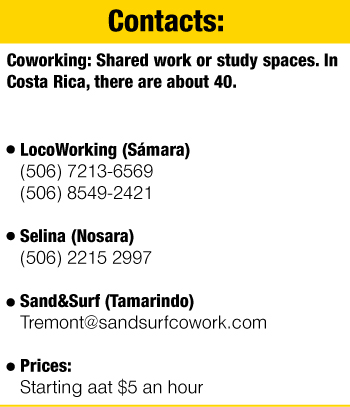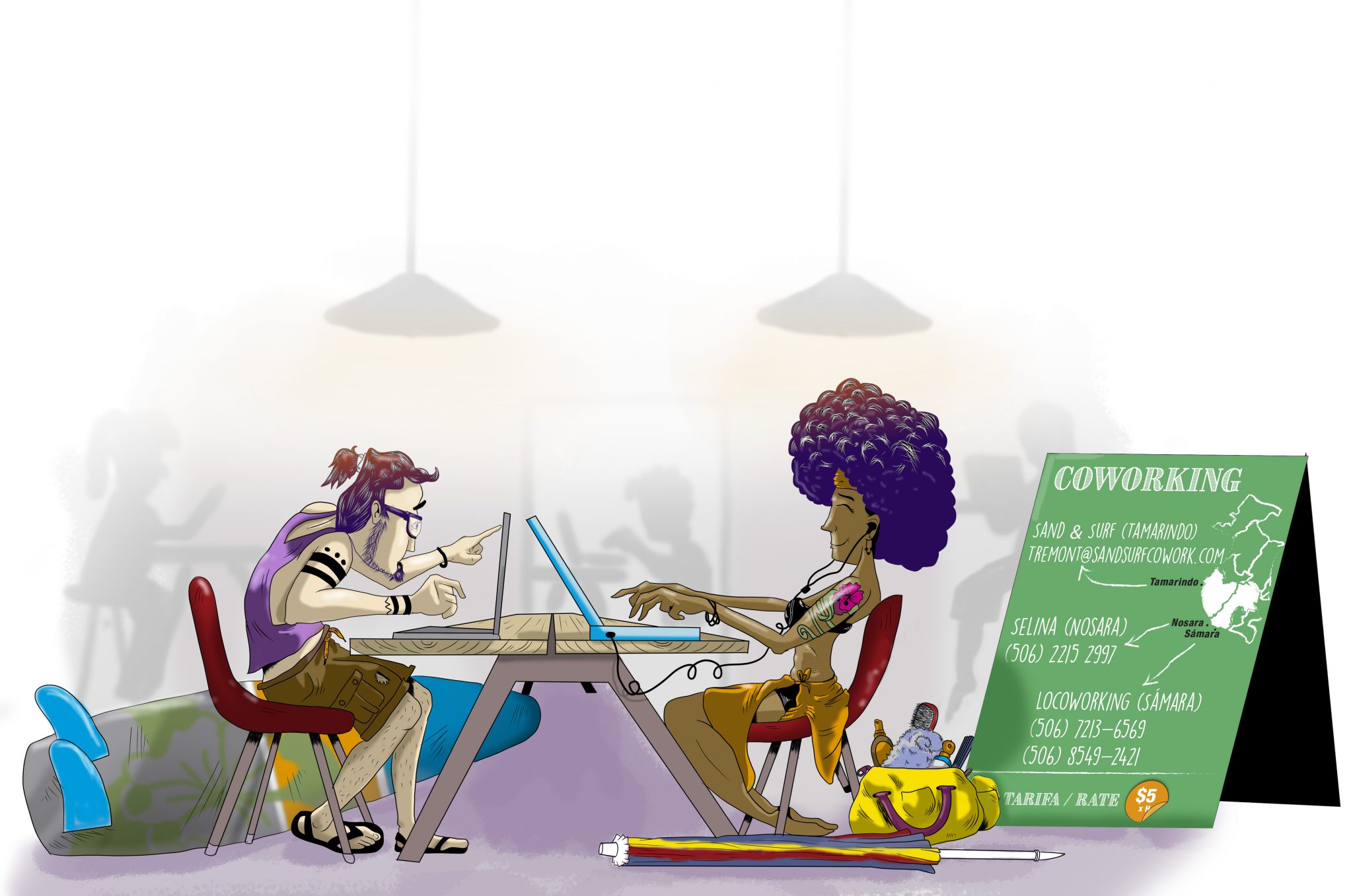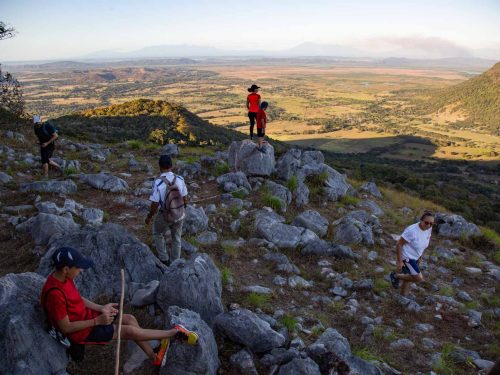
Lea Morillon is from France and she’s an independent journalist. She arrived in Sámara, Guanacaste and found out that there was nowhere to work, meaning she’d have to open her own office or work from home.
After visiting coffee shops and restaurants and not finding a good internet connection, Morillon founded LocoWorking, a space almost on the beach so that others like her could work in an environment designed specifically for their needs.
In two months, they have five full time customers who pay to wok in the space daily, on average for about a month. It’s a good number for the owner, who says that the air conditioning, high speed internet and free coffee and tea are the spaces best attractions.
Now we have space to receive 20 people. We see ourselves growing in the future because Guanacaste is an ideal place for it,” she says.
These shared working spaces are part of the coworking global trend. In Guanacaste, there aren’t many. Only five appear in a Google search for “Coworking Guanacaste.” But it seems that the province has the ideal characteristic for this type of business to thrive: The beach.
Ana Cirujano, blogger and designer, calls the trend “workation,” from the words work and vacation.
“The word had been trendy for a while in the United States. Instead of working at the same office all the time, taking a workation allows you to work in places that are traditionally vacation destinations,” Cirujano says.
“This way you can combine your work time with free time in your favorite place.”
According to the most recent numbers from Costa Rica’s Tourism Institute, the province is a beach destination recognized nationally and internationally. In March alone, the Daniel Oduber international airport in Liberia reported 166,240 visitors, the highest number since 2012 and 12% more than March 2018.
The ICT doesn’t measure how many people visit the country exclusively for coworking, but business meetings are the third most common reason for people to fly to Liberia, just behind vacations and visiting family.
A map made by Cushman & Wakefield identified between 35-40 coworking spaces across the country, most located in the San Jose metro area. They also found others – though don’t have precise numbers – in Guanacaste in places like Tamarindo, Nosara and Sámara.
Lizzy Contreras, head of public relations in Costa Rica for the hotel chain Selina, agrees with Cirujano. She says many nomads seek out tourist destinations like Costa Rica to combine rest with work.
In Guanacaste, the chain has a hotel in Tamarindo and another in Nosara. In this last one, they have a coworking space.
People want more flexibility in their jobs and also want to see the world without sacrificing their source of income. They prefer to consumer our product (Selina coworking) rather than risk being in the lobby of a hotel with poor internet connection,” she said.
People and Space
José Ignacio González, senior analyst for Cushman and Wakefield, AB Advisory, which monitors real estate corporations in Central America, says that the spectrum of people who use these spaces is very broad, but they have one thing in common. “It’s people who want to work, regardless of where they are.”
This type of coworker, according to González, is evidence of a flexible work culture that is growing among companies.
“It’s a matter of attracting and maintaining talent, which has become a top priority for companies. Keeping employees happy and motivated is a priority.”
In Costa Rica, not even the ICT nor other institutions have precise data on who visits these places. In the case of Selina in Nosara, the main coworkers are digital nomads, such as remote employees or freelancers. Most are guests and others live in the district.
In Sámara, for example, 80% of of LocoWorking clients are foreign. “Most people are from the United States and come to work and vacation,” Morillon said.
These kinds of offices come in a wide range of forms with different types of memberships. Nothing is standardized, but there are some characteristics that they share. For example, they have long desks for working, private offices, meeting rooms and areas for making calls.
LocoWorking, in Sámara, like many coworking spaces, has hourly rates that start at $5 as well as monthly packages for around $200.
Sharing Ideas
Morillón said that one of the main reasons that motivated her to open her cowork in Sámara was to create a space where digital employees in the community could get together and share ideas.
For González, these spaces become company incubators.
I’m an architect, and I work in this space three times a week, I run into you, an accountant, who works here twice a week and you offer to do my accounting. There’s a mutual benefit,” she says.
The dynamics that these spaces contribute to the economy is another benefit. In other words, people who work from coworking spaces end up becoming hotel guests, restaurants, and using other services in the community.
There’s no way to predict the future, but the trend is growing among remote workers and more spaces are appearing in Costa Rica and across the globe, hinting that shared work spaces will continue to be a growing trend.
“Each Selina that opens across the globe – more than 40 – has a coworking space. The size varies depending on the location, but it’s a reality,” Contreras said.








Comments